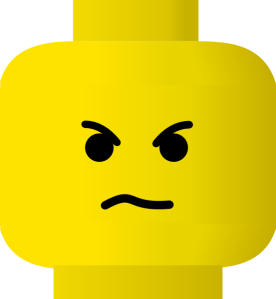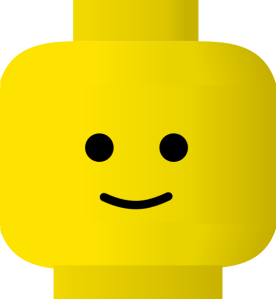How has my view of the role of a TL changed over the course of this subject?
A LOT! No wait… NOT A LOT! No wait… A LOT!
Let me elucidate. I came into this course after only having held my TL position for a year, with the crazy idea that my career was endangered. I didn’t think TLs would become extinct soon, but perhaps within a generation. My reasons for this were based primarily on the fact that…
Music easily and cheaply available online = death of CD shops
Films easily and cheaply available online = death of video shops
Video games easily and cheaply available online = gaming shops are disappearing
Information is EVERYWHERE = who needs me???
Studying my TL course it quickly became apparent to me that many people think this is the case (though some won’t admit it) and believe that the TL must evolve and adapt or else librarians might start losing their jobs and that would be a disaster! I have already blogged about my thoughts on this and how I reckon people need to chill out (like here and here and here.) I believe that 21st century learners have got it better than anyone ever did and that we should see the internet, e-books and so on, as great opportunities, not threats.
This dissatisfaction with TL literature came to boiling point in my previous post. There I stated that after having read such discussions on information literacy as found in Abilock (2004), Bundy (2004) and Langford (1998), I decided that in reality all people were doing was placing old-fashioned teaching methods and ‘library skills’ under new, funky titles in order to sound hip and relevant while in actual fact, changing very little other than the place where their research skills teaching occurs (wikipedia not encyclopedia, for example.)
I read articles on Guided Inquiry and constructivist teaching such as Sheerman’s (2011) and thought to myself, ‘I already do this. Sure, I have lots to learn and I’ve had successes and failures, but I already know the path TLs are supposed to be on.’ I was upset that GI was painted as being ‘for TLs’ when really it’s for all teachers. I was upset that TLs were trying to carve out their own niche in order to survive (GI is OUR job), when really what they need to do to ensure survival is to adapt, perhaps being on no different a job description than all the other teachers in the school, but becoming the expert.
Then Carol Kuhlthau came along.
Once I’d settled down and acknowledged that if I am a TL I might as well do the best job I can, Kuhlthau’s ISP model really scratched where I itched. (I have eczema.)
The model can be seen in overview here. It is more than just HOW to set up a GI task or HOW to show students how to use the internet or HOW to ensure you teach information literacy. This model shows the teacher what is happening as a student completes a task on emotive, cognitive and active levels. It considers the whole learner. By knowing what I will see, I will see whether I am really teaching and whether my students are really learning. By understanding that successful teaching and learning will look the same no matter the set task, I know that…
A: My students will be learning skills and processes that can be adapted to any situation, and
B: I will be a better teacher , understanding what my students must and will go through as they learn.
The role of the TL is evolving and I have little idea how it will look in 20 years. All I know is my role right now is important and I need to do a good job at it. As I posted on May 8:
To me, true information literacy is knowing that my students are walking out of the door better equipped to meet the demands, challenges, expectations, and fantastic opportunities that the world now offers them. The jobs they will end up having may not have been invented yet, but I want them to be ready to take them.
REFERENCES
Abilock, D. (2004). Information literacy: an overview of design, process and outcomes. Retrieved from: http://www.noodletools.com/debbie/literacies/information/1over/infolit1.html
Bundy, A. (ed.) (2004). Australian and New Zealand Information Literacy Framework: principles, standards and practice. 2nd ed. Adelaide: Australian and New Zealand Institute for Information Literacy (ANZIIL) and Council of Australian University Librarians (CAUL). Retrieved from: http://webcache.googleusercontent.com/search?q=cache:http://www.caul.edu.au/content/upload/files/info-literacy/InfoLiteracyFramework.pdf
Kuhlthau, C.C. (2013). Information search process. Retrieved from http://comminfo.rutgers.edu/~kuhlthau/information_search_process.htm
Langford, L. (1998). Information literacy: a clarification. Retrieved from: http://www.fno.org/sept98/clarify.html
Sheerman, A., Little, J., & Breward, N. (2011). iInquire… iLearn… iCreate… iShare: Guided Inquiry at Broughton Anglican College. Scan, 30(1), 4-5.


